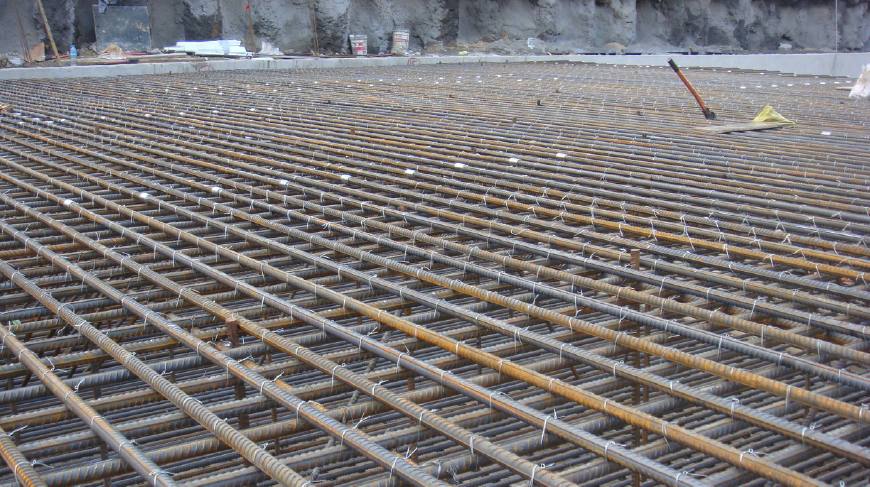Basalt Rebar vs Steel: Cost, Durability, and Performance Comparison
In the world of construction, selecting the right reinforcement material is crucial for the strength, durability, and longevity of structures. Rebar, or reinforcing steel, has been the traditional choice for decades, but recently, basalt rebar has emerged as a promising alternative. Known for its natural properties, basalt rebar is being recognized for its potential to outperform steel in certain applications, offering unique advantages in terms of durability, cost-efficiency, and environmental impact.
In this article, we will delve into a detailed Basalt Rebar vs Steel comparison, focusing on three critical factors: cost, durability, and performance. By examining the strengths and weaknesses of each material, we aim to provide a clear understanding of when and why one may be preferred over the other in construction projects.

What is Basalt Rebar?
Material Properties of Basalt Rebar:
Basalt rebar is a type of reinforcement made from volcanic rock, primarily composed of basalt fibers that are spun and then formed into bars. It is a non-corrosive, high-performance material, which has been gaining popularity in construction due to its strength, durability, and resistance to extreme environmental conditions. Unlike traditional steel rebar, basalt rebar offers natural resistance to corrosion from chemicals, moisture, and salts, making it ideal for use in coastal areas or places where concrete structures are exposed to harsh elements.
The basalt fibers are extracted from volcanic rocks, heated to high temperatures, and then processed to form rebar. This process produces a rebar that is light in weight, strong, and resistant to chemical degradation. Basalt rebar is also non-conductive, making it a safer option for certain types of construction where electrical conductivity could be a concern.
Manufacturing Process of Basalt Rebar:
The process of making basalt rebar involves extracting basalt rock from volcanic formations, which is then melted at high temperatures. The molten basalt is then drawn into fibers, which are wound into a continuous strand. These strands are then woven into a roving, which is further processed and pulled into the desired rebar shape. The final basalt rebar product is then coated for added protection and strength.
The result is a material that is stronger than steel in terms of tensile strength and lighter in weight. Additionally, basalt rebar is less expensive to manufacture than carbon fiber composites, which offers a cost-effective alternative for reinforcing concrete.
What is Steel Rebar?
Material Properties of Steel Rebar:
Steel rebar is one of the most commonly used materials for reinforcing concrete in construction. Made from high-carbon steel, steel rebar is designed to withstand tension, compression, and shear forces within concrete structures. The ribbed surface of steel rebar helps it bond securely with the surrounding concrete, ensuring a solid and durable connection.
The primary advantages of steel rebar are its high tensile strength, low cost, and ease of availability. Steel has been the standard for rebar in construction for decades, and its reliable performance in a wide range of applications has made it the go-to choice for engineers and contractors.
Types of Steel Used in Rebar:
While standard steel rebar is the most common type used, there are various grades of steel rebar available, depending on the specific strength requirements. Common types include:
- Mild Steel Rebar: Used in general construction, offering good weldability and formability.
- High-Strength Steel Rebar: Designed for situations where higher tensile strength is required.
- Stainless Steel Rebar: More corrosion-resistant than regular steel rebar, typically used in marine environments or highly corrosive conditions.
Steel rebar’s versatility, strength, and cost-effectiveness have made it a staple in construction worldwide.
Cost Comparison: Basalt Rebar vs Steel
When it comes to cost, there is often a significant difference between basalt rebar and steel rebar. Initially, basalt rebar tends to be more expensive than steel rebar due to its manufacturing process and the specialized materials used. However, the cost difference should be considered over the long term, as the durability and reduced maintenance costs of basalt rebar can offset the initial higher price.
Initial Cost:
Steel rebar is more widely available, and its mass production has resulted in lower prices. Typically, the price of steel rebar per ton can be significantly cheaper than basalt rebar. The cost of basalt rebar varies depending on the supplier, the quality of basalt used, and the market demand, but it’s generally more expensive by 20% to 50% compared to steel rebar.
Long-Term Cost Considerations:
Despite its higher upfront cost, basalt rebar can be more cost-effective in the long run. This is due to its durability and corrosion resistance. Steel rebar is prone to rust and deterioration over time, especially in environments where moisture, salts, and chemicals are present. Rusted steel rebar can weaken the concrete structure, requiring costly repairs or replacements. On the other hand, basalt rebar’s natural resistance to corrosion means that structures reinforced with basalt rebar may not require frequent maintenance, resulting in long-term savings.
Additionally, the lighter weight of basalt rebar can reduce shipping and handling costs, further making it a viable option for certain construction projects.
Durability: Which Rebar Lasts Longer?
Durability is a critical factor when choosing between basalt rebar and steel rebar. While both materials are designed to enhance the structural integrity of concrete, they have different characteristics when it comes to longevity.
Corrosion Resistance of Basalt vs Steel:
Steel rebar is highly susceptible to corrosion, especially in environments exposed to moisture, chlorides, or acidic chemicals. When steel rebar corrodes, the expansion of rust can cause concrete to crack, compromising the structural integrity of the building. In harsh conditions, steel rebar may require replacement every few decades.
In contrast, basalt rebar is naturally corrosion-resistant due to its volcanic mineral composition. It doesn’t rust or degrade when exposed to water or chemical agents, making it an ideal option for construction in coastal areas, chemical plants, or regions with extreme weather conditions. Because basalt rebar doesn’t corrode, it offers a longer lifespan and reduces the need for frequent repairs.
Performance in Extreme Conditions:
Basalt rebar also performs well in extreme temperatures, whether hot or cold. It can withstand high temperatures without losing its mechanical properties, which makes it suitable for fire-prone environments. Steel rebar, on the other hand, can weaken under extreme heat, especially during fires, which can compromise the structural integrity of buildings in the aftermath.
In terms of performance in cold climates, basalt rebar has an advantage as it is less prone to cracking or breaking due to freeze-thaw cycles, unlike steel rebar, which can experience stress fractures.
Performance: Strength and Load-Bearing Capacity
Both basalt rebar and steel rebar are designed to provide strength and reinforcement to concrete structures. However, they differ in terms of their performance under various load-bearing conditions.
Comparing the Strength of Basalt Rebar and Steel:
Steel rebar has long been praised for its high tensile strength, and it is the standard by which most other reinforcement materials are measured. Steel can withstand considerable tension, making it ideal for applications where concrete is subjected to heavy loads and forces.
Basalt rebar, while not quite as strong as steel in terms of pure tensile strength, performs admirably in most construction applications. It has a higher specific strength-to-weight ratio, meaning it offers excellent reinforcement without adding excessive weight. In many cases, basalt rebar can be used in place of steel rebar in structures that do not face extreme tensile loads, such as roads, bridges, and buildings.
Load-Bearing Capabilities:
Steel rebar is preferred for heavy-duty applications that demand maximum load-bearing capacity, such as high-rise buildings, bridges, and highways. However, basalt rebar is still suitable for a wide range of applications, particularly in less demanding situations where corrosion resistance is a higher priority. For instance, structures built in marine environments or areas with heavy chemical exposure can benefit from the use of basalt rebar.
Advantages of Basalt Rebar
- Corrosion Resistance: As mentioned, basalt rebar is naturally resistant to rust and corrosion, making it a better choice for structures exposed to water, salt, and chemicals.
- Lightweight: Basalt rebar is lighter than steel, which makes it easier to handle and transport.
- Non-Conductive: Unlike steel rebar, basalt is non-conductive, which makes it a safer option in certain electrical environments.
- Eco-Friendly: Made from natural volcanic rock, basalt rebar has a smaller carbon footprint than steel rebar, making it an environmentally friendly option.
Advantages of Steel Rebar
- High Tensile Strength: Steel rebar is known for its superior tensile strength, making it an excellent choice for heavy-duty applications.
- Cost-Effective: Steel rebar is cheaper and more readily available than basalt rebar, making it the go-to option for most standard construction projects.
- Proven Track Record: Steel rebar has been used for decades in all types of construction and is trusted for its reliability and performance.
Conclusion
In the debate of Basalt Rebar vs Steel, both materials have distinct advantages depending on the specific needs of a construction project. Steel rebar continues to dominate in terms of tensile strength and cost-effectiveness, especially for large-scale projects that require heavy-duty reinforcement. However, basalt rebar offers significant long-term benefits, especially in environments where corrosion and environmental degradation are concerns. Its superior resistance to corrosion, lighter weight, and environmental benefits make it an ideal choice for projects in coastal areas, chemical plants, or other harsh environments.
Ultimately, the choice between basalt rebar and steel rebar will depend on the specific requirements of the project, including budget, environmental conditions, and long-term maintenance considerations.

